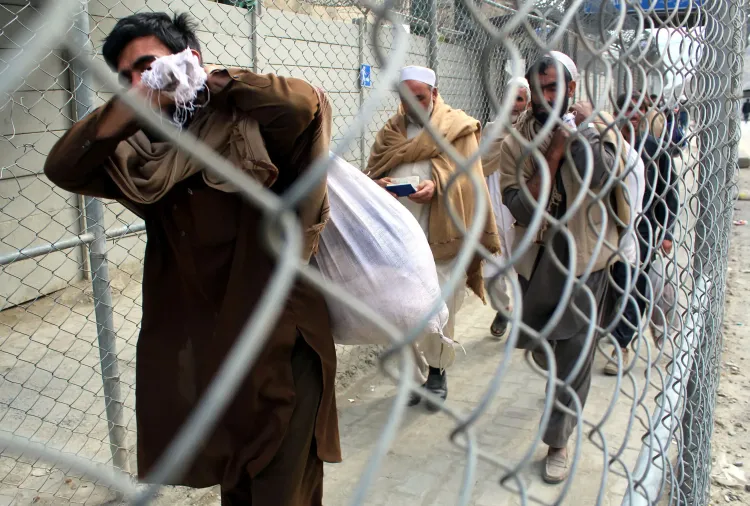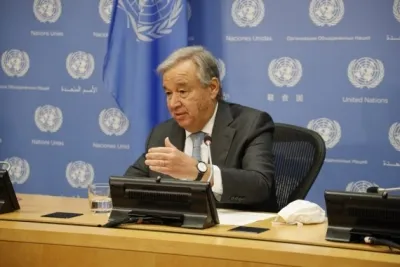Is the Taliban Facing a Humanitarian Crisis Due to Forcibly Returned Refugees?

Synopsis
Key Takeaways
- Afghanistan is suffering from a humanitarian crisis exacerbated by natural disasters and forced migrations.
- The recent earthquake has caused significant loss of life and displacement.
- Refugees returning from Pakistan face uncertain conditions and strained resources.
- International aid is crucial for addressing the needs of the Afghan populace.
- The Taliban's governance challenges are intensified by this crisis.
Kabul, Sep 10 (NationPress) Afghanistan is currently enduring a severe humanitarian crisis, exacerbated by the influx of forcibly returned refugees from Pakistan, alongside widespread poverty, extended drought, and the aftermath of a recent 6.0 magnitude earthquake, according to local media reports.
In the wake of the earthquake, which struck eastern Afghanistan near Jalalabad in Nangarhar province, over 1,400 lives were lost, and more than 3,000 individuals were injured, resulting in countless families being displaced. The mountainous terrain has suffered extensive damage, with rescue teams encountering significant challenges in reaching remote areas where mudbrick homes have collapsed, as reported by Afghan news agency Khaama Press.
Sharafat Zaman, a spokesperson for the health ministry, indicated that the number of casualties may continue to rise as rescue operations persist in isolated regions. Hospitals across Afghanistan are currently overwhelmed, with hundreds of individuals already seeking medical treatment.
According to the report, 'The earthquake struck at a time of deep fragility for Afghanistan, a nation grappling with widespread poverty, prolonged drought, and decades of conflict.' The Taliban, still in the process of solidifying its governance since the takeover in 2021, is now confronting a humanitarian emergency that is worsened by diminishing international assistance and the increasing number of forcibly returned refugees.
The situation is further complicated by Pakistan's enforcement of its 'Illegal Foreigners Repatriation Plan,' which targets both undocumented Afghans and those with official documentation. This decision affects over 1.4 million refugees holding UNHCR-issued Proof of Registration (PoR) cards and approximately 800,000 with Afghan Citizen Cards (ACC). Despite numerous appeals from international organizations, Pakistan has persisted with its deportation policies.
A deadline of September 1 mandated that PoR card holders either leave voluntarily or face arrest and expulsion. Following this, thousands of Afghans fled across border points such as Torkham, Chaman, and Spin Boldak. In just one day, over 6,300 individuals with PoR cards returned through Torkham, many to devastated homes or areas lacking infrastructure and support. Deportees have reported widespread harassment, police raids, extortion, and repeated detentions, according to Khaama Press.
In cities like Islamabad, families have fled in groups to evade separation, facing the uncertainty of returning to a homeland they may not recognize. Refugees have expressed deep concern as they navigate areas where services are already strained due to disaster recovery efforts.
Since April 2025, more than 362,000 Afghans have returned from Pakistan, including over 54,000 deportations. The rise in arrests across Balochistan and Punjab has added pressure on both Afghan authorities and international humanitarian organizations. The earthquake has intensified this crisis, leaving many returnees without shelter, livelihoods, or essential support.










